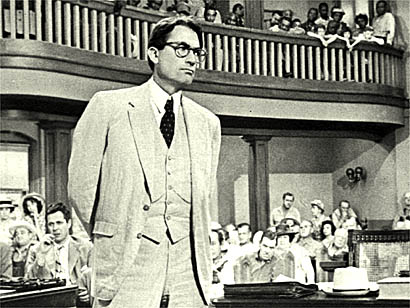 I really enjoyed reading your responses to my post last week, “What would you do?” I promised that I would tell you this week how I handled the situation.
I really enjoyed reading your responses to my post last week, “What would you do?” I promised that I would tell you this week how I handled the situation.
Here’s what I did: Nothing.
I am somewhat embarrassed to tell you that I did not take any action with regard to the teacher’s error.
Why? Actually, I had a number of reasons, none of which had anything to do with neuroticism or perfectionism.
The most important reason was, for me, a desire not to jeopardize my son’s wonderful relationship with his teacher. As I explained, this incident occurred in an extremely small, nondenominational Christian school in which the teachers and students enjoy a lot more daily interaction than is possible in larger environments. In our public schools, it is not unusual to hear that classes have 35, 38 or even 40 students. At the high school level, that means that a teacher sees at least 150 to 200 students over the course of teaching five or six different “periods” during a given day. The teachers cannot possibly get to know and develop a personal relationship with that many students.
But in my child’s school, there were only about fifteen freshman and a couple of the teachers taught more than one subject.
So I was loathe to do anything that would upset the delicate sociological, interpersonal balance and, perhaps, subject my son to — even unconscious and non-deliberate — retaliation as a result of my confronting the teacher.
The tuition is a significant expense, but I know that the teachers in such small private schools are paid far less and enjoy fewer benefits than public school teachers. They do not have the luxury of tenure, for instance. And sometimes such institutions have a hard time attracting the best qualified teachers because they cannot offer competitive compensation and benefit packages.
 When I investigated the situation, I learned that the teacher in question might not return for the coming school year. I also found that the focus of her teaching was geared more toward appreciating literature than the mechanics of writing. They read “To Kill a Mockingbird,” for instance, and watched the classic film starring Gregory Peck as Atticus Finch. They also read “The Old Man and the Sea” and “Animal Farm,” among other classics, and did a lot of writing about their reactions to what they read.
When I investigated the situation, I learned that the teacher in question might not return for the coming school year. I also found that the focus of her teaching was geared more toward appreciating literature than the mechanics of writing. They read “To Kill a Mockingbird,” for instance, and watched the classic film starring Gregory Peck as Atticus Finch. They also read “The Old Man and the Sea” and “Animal Farm,” among other classics, and did a lot of writing about their reactions to what they read.
Therefore, the teacher’s emphasis was not on grammar, punctuation, etc. Rather, she encouraged the students to read and develop a passion for writing. My son told me that they spent a lot of time in class “talking about life and faith” in relationship to the literature they read and wrote about.
As several commenters suggested, I did monitor my son’s papers to see if the mistake would be repeated. It was not; nor did I note any other errors of that magnitude.
One reader suggested that the “teacher may have been in a hurry or tired”. Perhaps, but I do not believe — although I make plenty of mistakes when writing — that I would ever make such an error involving the basic use of language, nor would most of the competent writers I know.
My son really liked the teacher and they had a wonderful rapport. She was otherwise supportive, positive and empowering in her dealings with him and he ended up not only with excellent grades, but was named “Young Author” at the school’s awards ceremony. The teacher’s overall demeanor and attitude boosted my shy, good-hearted boy’s self-esteem and encouraged him to explore his unique, witty writing style.
So basically, after assuring myself that my son recognized the error, I deemed it best to do nothing. At this writing, I do not know if the teacher will be returning for the coming school year. If she is, I am debating whether to say anything in confidence to the principal about the situation so that she can keep a watchful eye. If I do mention it, I will do so in the context of inquiring whether this year’s curriculum will be more focused upon the mechanics of writing which I believe to be essential, especially, as a couple of commenters pointed out, for high school sophomores since they will be preparing for various college entrance and placement examinations.
The situation was a great learning experience for our family. It provided an opportunity to model patience, forgiveness and discern when it is appropriate and constructive to offer criticism as opposed to letting a transgression slide.
Sometimes, even when dealing with a highly technical craft like writing, the “greater good” has to be considered. A competent grasp of the principles of grammar, punctuation and usage is, of course, mandatory in order to be a successful writer. But we all make mistakes. A former supervisor regularly declined to review my work, saying, “I know that it is fine if you wrote it.” I would insist, placing my draft document on the top of his “in” pile, saying, “I need an audience. Even F. Scott Fitzgerald had an editor.” He would laugh and acquiesce. And it never failed: He always found at least one or two spelling or grammatical errors. Sometimes he would bring back the draft with a sentence or couple of sentences circled with a “?” or “awkward” in the margin. That would tell me that the thought, idea or theory I was attempting to convey was not clear to my readers and allow me to clarify its presentation in the final draft.
Bottom line: Criticism is necessary and we all have to develop a “tough skin” if we want to hone our skills. However, there are times and situations when it is best to overlook an error in favor of accomplishing something more important than technical competence: To encourage a struggling writer, you may opt to “not sweat the small stuff” so that individual is empowered to keep putting words on the page (or computer screen). In the long run, you may do that person — and his/her future readers — a greater service than if you pointed out every single error made while a fledgling writer. I’m confident that Atticus Finch would approve.


Comments are closed.